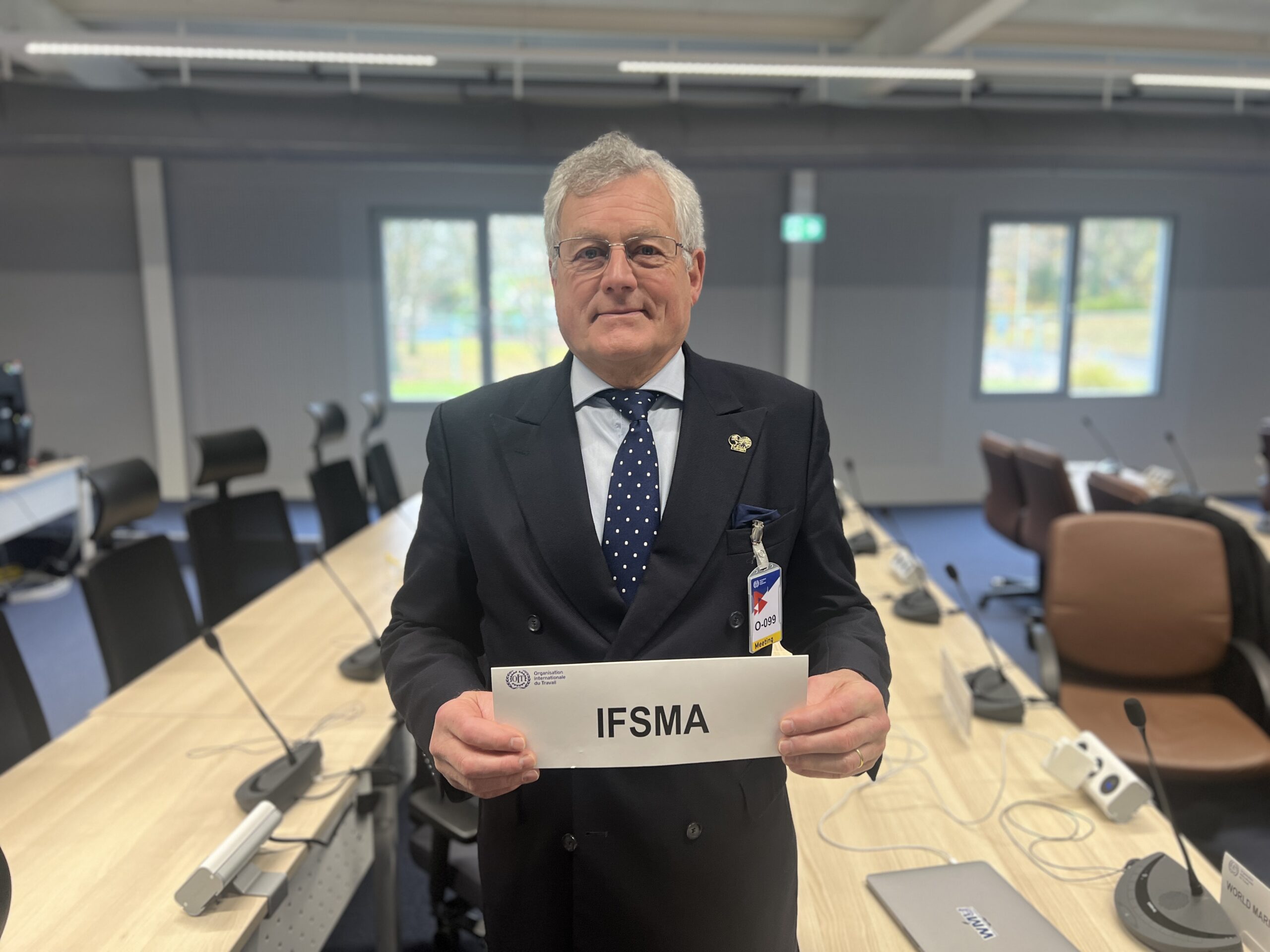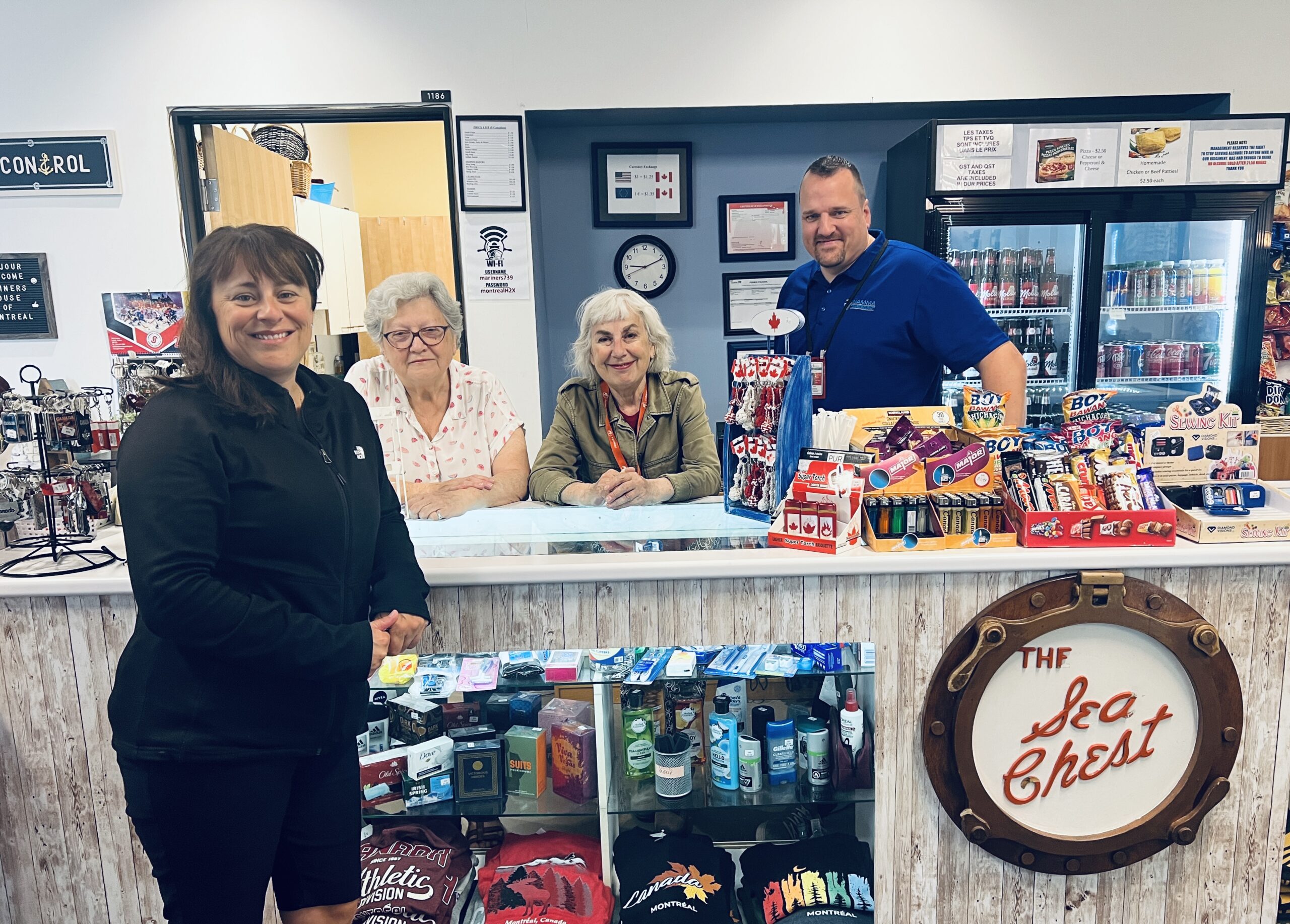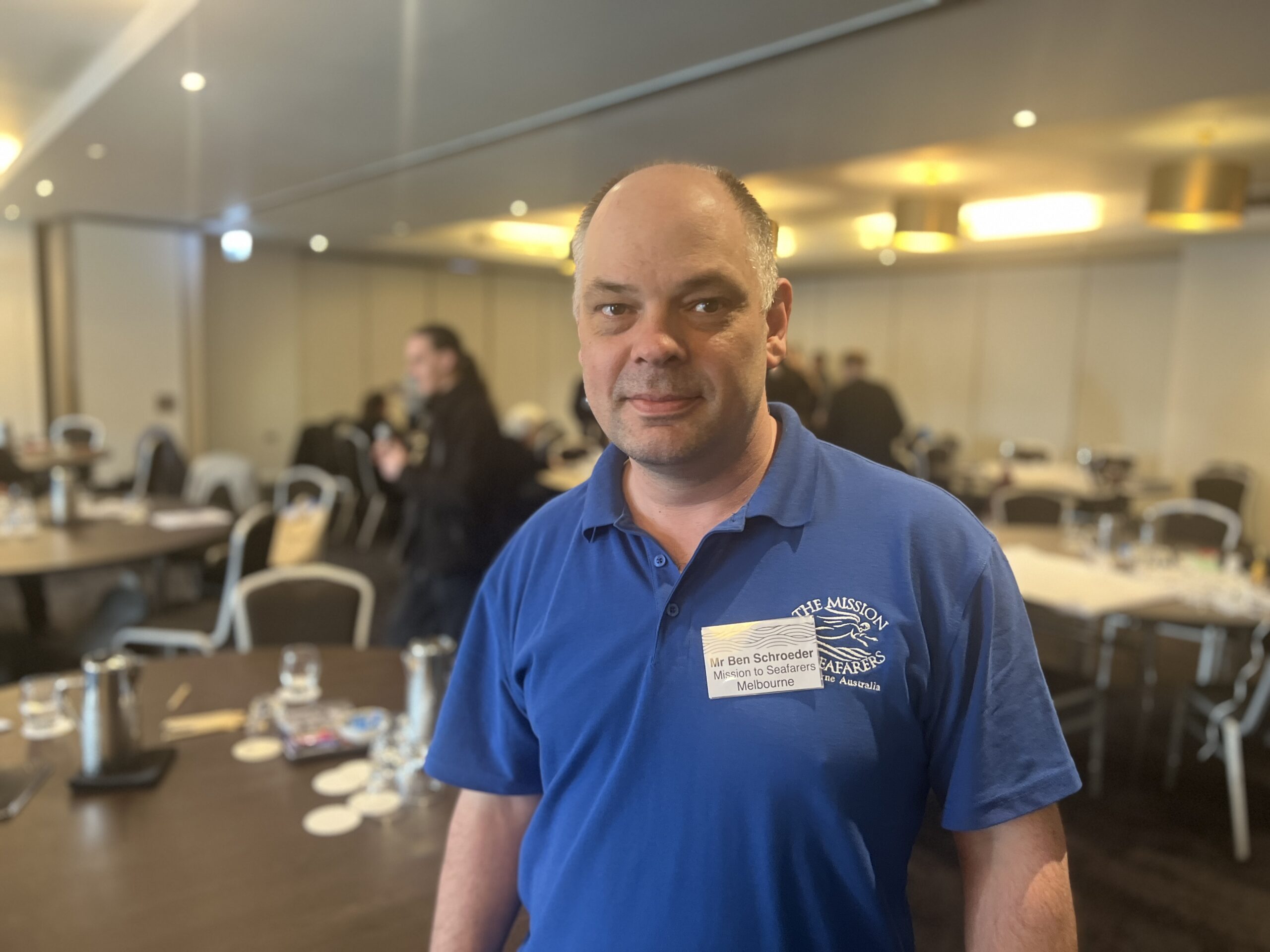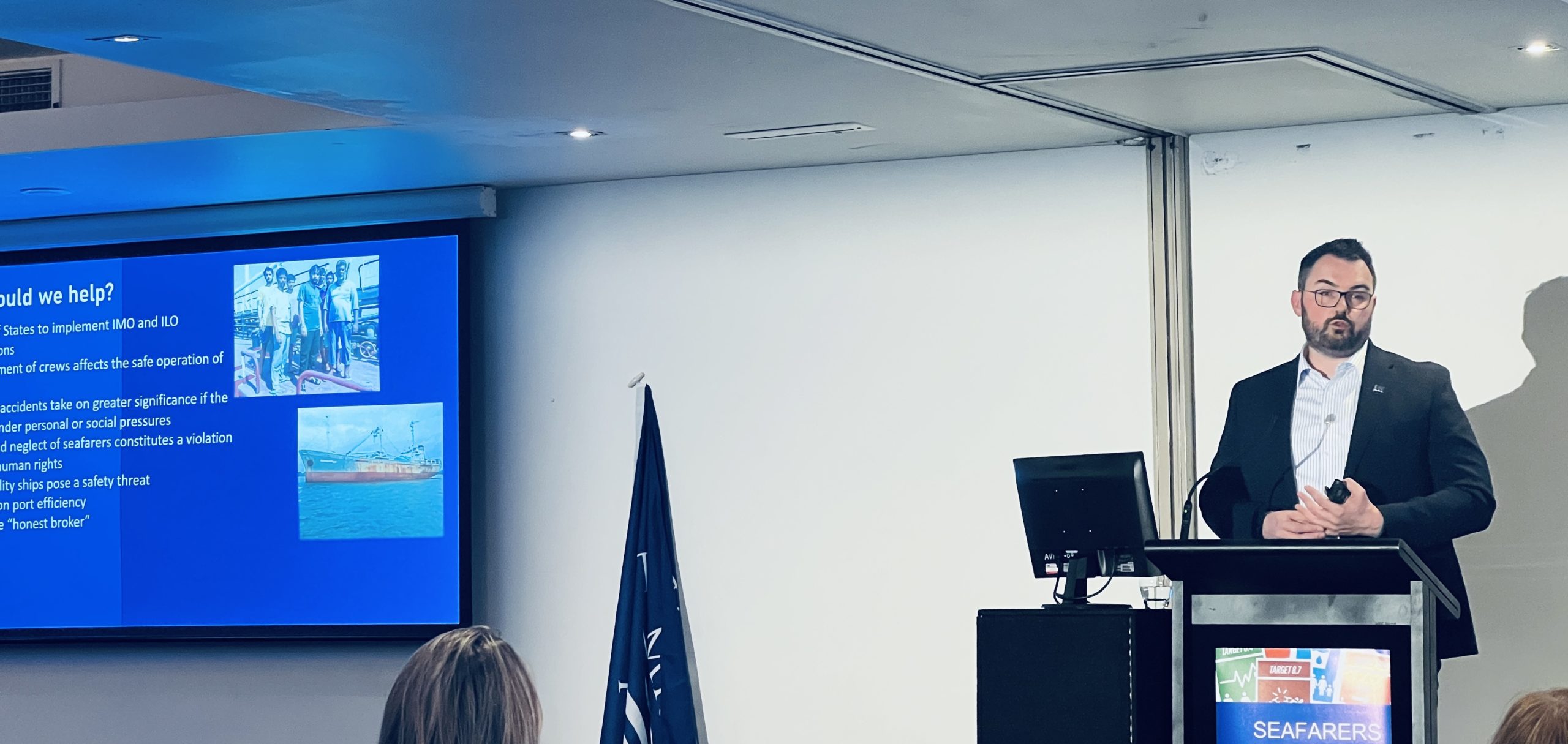The MARE Report had an opportunity to speak with Commodore Jim Scorer is Secretary-General of the International Federation of Shipmasters’ Associations (IFSMA) on the margins of a recent IMO-ILO joint meeting in Geneva on the fair treatment of seafarers accused of crimes.
The MARE Report:
Thank you for being willing to speak with us. In The MARE Report, we like to share best practices and perspectives on seafarers’ welfare from different angles. So much of seafarers’ welfare, of what we do, is not just in our own little bubble, but it’s with other partners, learning from other people. Can you tell us about IFSMA? What does the acronym mean? And what do you do? What do you try to do for your members?
Cdre. Jim Scorer:
Yes, thank you. We are the International Federation of Ship Master Associations (IFSMA). Our sole purpose is to represent ship masters around the world on the international stage, primarily at the IMO. And so, we’re all the time looking at current legislation, future legislation coming in, and how we can try and get it changed for the better. And I look after seafarers, ship masters, because actually, I care passionately about them, and I hate the way in which people are exploited. So that’s a rough thing, and that’s why, IFSMA was set up all those years ago because of exploitation, the position of responsibility that ship masters are in. We are the only organization that looks primarily after ship masters and how to try and help them through the quagmire of the international law that is out there.
The MARE Report:
We’ve heard it said that in many places, going to the top, being the master of the ship is a very lonely place to be. Do you have any thoughts on that? What does it mean?
Cdre. Jim Scorer:
You would like to think that all masters and all seafarers fight to get to the top because they want to run their ships, but they want to look after their people. And it doesn’t necessarily work like that. And I think that years ago, when you look back before, there were what I would call the increased time pressures, where you had lots of people on board, there was always time, and therefore there was a different relationship. I think it might have been harder in some ways, and the rules more strict, but there was always that sort of esprit de corps, whether it was within a ship or within a company, because you were employed by a company. And I think now the problem is, really, you don’t know who you’re being employed by, because unless you are one of the big companies who still have their own hiring organization and keep them in the family, you go through an agency, and you’re doing a job for a trip or two. And then you can move on. And there is, there lacks this loyalty bit. But I think you, from my perspective, and the way I’ve always felt about it, is that you have a responsibility being an officer on the ship at any rank, and you should be looking after your people. You should be caring for them, and they should feel included in what you do, because what we don’t want to do is for them to be isolated. And I think this is how things have changed over the years now with internet and this instant communication. People go on watch, do their watch, and they go off watch, they’ll rush in to have something to eat, possibly or possibly not, and then go into their cabins and shut themselves away. And there is this isolation. So I’m very keen that as an officer, and particularly as a captain, that you get around the ship, and yes, you have responsibilities, you have paperwork, you have watch keeping to do, but that’s a small part of the job. The main part for me is to be seen around, to be with your people and to understand them, because you need to be able to see when things are not right in our world.
The MARE Report:
What are two or three of the key problems that captains are facing? How is your association trying to help them?
Cdre. Jim Scorer:
It changes in different sectors. If you’re deep sea, it is not as bad as if you’re doing short sea. Short sea shipping, the type where the time pressures are very big. Long haul deep sea, there’s a bit more boredom, but there are always things to do.
The biggest concern I have, and the thing that I spend most of my time doing, is, how can you get the pressure off the ship master from the owners, because the pressure is on the ship all the time, and it’s… it’s the loyalty issue, and it’s difficult to say, isn’t it, but actually the fundamental corruptness of a lot of ship owners and shipping and the way in which it is done. I am pushing very strongly, and I talk with ITF all the time about, how can we get the working hours down? That’s my big concern. The criminalization and working hours and the recording of those working hours in an honest fashion, those are my two big, really big things.
The MARE Report:
In our seafarers’ welfare groups, one of the things we most often provide is shore leave for crews. How do masters view this, and why is this important for them?
Cdre. Jim Scorer:
There is a big problem. If you talk to the senior masters now who are leaving and retiring, they remember quite very fondly of their days when they would go into a harbor, offload. They would have two or three days, shore leave, pottering around, taking in the culture, seeing things. And it was an exciting part of being a seafarer. Then now, there’s no time. Time is money, as far as the ship owner is concerned. So, you’re in, you offload, you load, you’re gone. There is no time unless you’ve broken down. But even if you’re broken down, there is so much to do. In a lot of places, we can’t get access to shore leave. I think that’s actually something where what you do, is so important. And you go across all seafarers, and you don’t worry about religion or anything else, it is about being there for them and providing that soundboard, that place that is off the ship, where they can actually just go and talk to somebody, and to be normal, that isn’t necessarily another crew member.
The MARE Report:
Thank you very much.





